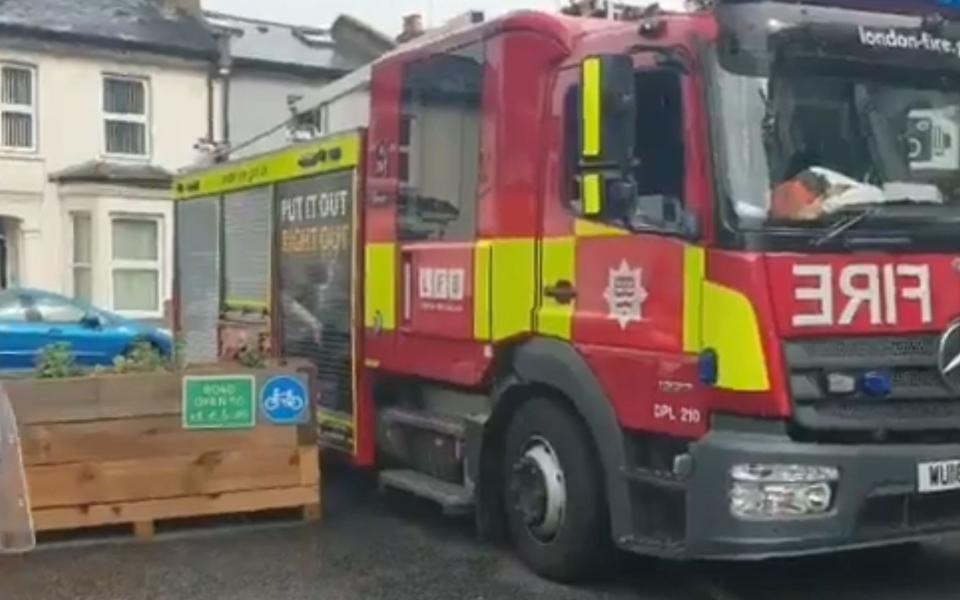'Green' roads slow down access for emergency service vehicles, London Fire Brigade warns

Britain’s biggest fire service has written to councils warning how road closures introduced to promote a green transport revolution can slow 999 emergency response times.
The London Fire Brigade (LFB) letter, seen by the Telegraph, says while it supports the scheme to make roads safer for cyclists and pedestrians, councils need to ensure they do not hamper firefighter’s ability to reach life or death emergencies.
The letter, sent to the capital’s local authorities, says: “We are concerned that some changes to road layouts may impede our operational response and request you consult [the] LFB and work with our borough commanders at local level to ensure that proposals, or any temporary measures while works are ongoing, do not affect our ability to attend incidents.”
A Freedom of Information request has revealed how just weeks after Mr Shapps’ announcement about the £250 million scheme, a station commander for Leytonstone and Leyton in East London warned one council how barriers fitted to close roads “will impact on the attendance times of all our emergency vehicles.”
Meanwhile, on Thursday a fire appliance was filmed trapped against a car and a planter fitted at the end of a residential street in Brixton, as seen below.

Firefighters were responding to concerns an electrical appliance could trigger a fire at a home when its route became blocked. Firefighters continued on foot to the nearby property. No one was injured and no fire started.
A Lambeth Council spokesman said the planters were fitted after consulting the LFB, but it would be moved now to another location on the same street.
A London Fire Brigade spokeswoman said: “The Brigade supports these proposals in order to assist the recovery from the pandemic and to promote active travel, however we have written to Transport for London and local authorities to remind them that our current response standard is to get the first fire engine to an incident within a London-wide average of six minutes and the second fire engine within a London-wide average of eight minutes.
“Whenever there are road closures or changes to road layout on a station’s ground, firefighters will inspect whether they will have an impact on their response. If crews deem there will be a significant effect on them responding to an emergency, this will be raised with the council.”
A spokesman for the Department for Transport said: “Our guidance to councils is absolutely clear that changes to road layouts must accommodate emergency services, and we expect them to make sure that is the case. If councils fail to demonstrate their plans are genuine improvements then we will not hesitate to withhold funding.”

